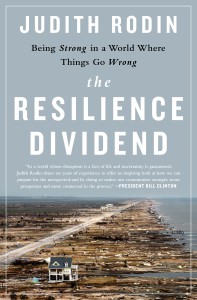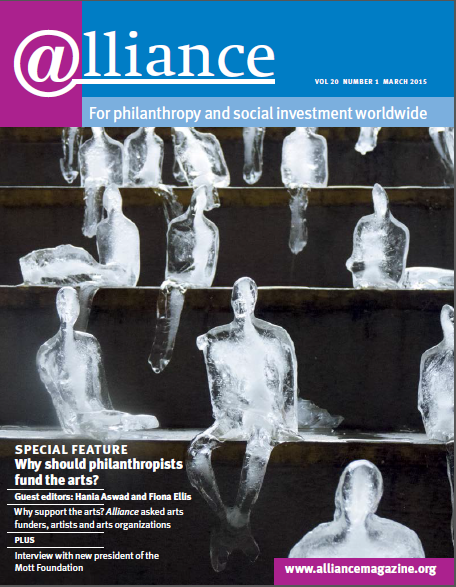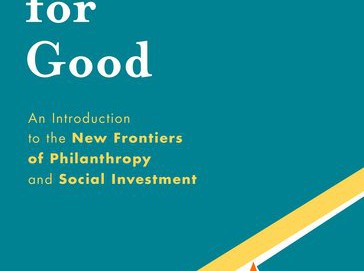Review by Alejandro Litovsky
I was intrigued by the invitation of a prime minister to discuss social innovation, so I attended the unusual political meeting last January in Berlin, which was hosted by German Chancellor Angela Merkel. The Chancellor’s message was humble and clear: 2015 will be a critical year for tackling the most complex global challenges of our time – climate change, poverty and resource insecurity, and the sustainability of urban growth. In her view, this will demand of political leaders the difficult task of seeing the ‘bigger picture’ and supporting more integrated solutions.
 But the key to the future could lie in the past: the Chancellor said we needed to embrace the ideas of Alexander von Humboldt (1769-1859), a Prussian geographer, naturalist and explorer – a holistic thinker. Humboldt was the first to propose that the continents on either side of the Atlantic Ocean were once joined. His work, the Chancellor reminded us, is relevant to us today because it attempted to connect various branches of scientific knowledge.
But the key to the future could lie in the past: the Chancellor said we needed to embrace the ideas of Alexander von Humboldt (1769-1859), a Prussian geographer, naturalist and explorer – a holistic thinker. Humboldt was the first to propose that the continents on either side of the Atlantic Ocean were once joined. His work, the Chancellor reminded us, is relevant to us today because it attempted to connect various branches of scientific knowledge.
Merkel walks her talk. She has pushed Germany’s large-scale energy transition towards efficiency and renewables – its Energiewende. It is a bold move to force the country’s industrial, energy and environmental policies out of their silos to converge in a systemic transformation.
These and other efforts to improve the state of the world are happening in an increasingly volatile and unpredictable environment – one where the changing balance in the geopolitical order is making global agreements more difficult. The bottom line is that companies, governments, civil society and (yes) social investors cannot aspire to build prosperity without building ‘resilience’. To understand what this means for you, reader of Alliance magazine, and how to implement it in your organization or social investment fund, you have to read only one book: The Resilience Dividend by Judith Rodin, president of the Rockefeller Foundation.
Rodin draws on her personal experience during Superstorm Sandy as well as an impressive array of stories from around the world. The core message is compelling: we must see the world with new eyes and understand that social, environmental and economic risks and opportunities do not happen in separate dimensions but are critical components of an interconnected system. The implication of Rodin’s message is immediately graspable: social investment, public policy and corporate strategies must all reconsider how to move from dealing with ‘issues’ to dealing with ‘systems’.
The book provides a tour de force of why and how resilience matters in different countries, industries and settings. Everywhere vulnerabilities must be addressed through new investment. Rodin outlines three areas of opportunity: strengthening infrastructure, as illustrated by the upgrading of San Francisco’s built environment; increasing connectivity through transport investments, showing how the investment in a new Metro system in the city of Medellin, Colombia, helped reduce crime and improve the city’s vibrancy and well-being; and finally risk transfer, showing the role that insurance companies can play in protecting assets in the face of natural disasters such as those that have recently hit the US and Japan.
Judith Rodin’s book will prove to be essential reading to leaders across sectors that are addressing the complexity of challenges facing humanity. Beyond the book, Rodin is also walking her talk: translating these ideas into action, investments and new partnerships that are evident in the strategic alignment of the Rockefeller Foundation.
It strikes me that Judith Rodin and Angela Merkel have something in common. Their work shows that leadership in the 21st century requires a new mindset. Integrated thinking must now be at the centre of decisions that deal with an increasingly complex and interdependent world. The Resilience Dividend should be compulsory reading in the social investment community.
Alejandro Litovsky is the founder and CEO of the Earth Security Group. Email: alejandro@earthsecurity.org
About the book
Published by
Public Affairs
Price
$27.99
ISBN
9781610394703
To order
http://www.publicaffairsbooks.com





Comments (0)